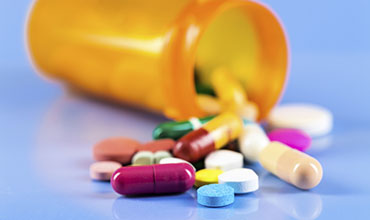
Antibiotics kill bacteria. Plaque contains bacteria, so antibiotics will reduce the amount of plaque in your mouth. This can reverse gum disease and allow your gums to heal.
Dentists prescribe antibiotics in different forms to treat gum disease. They can be applied directly on the gums (topical), swallowed as pills or capsules, swished around on your teeth as mouthwash, or inserted into the pockets of advanced gum disease. Some medicated toothpastes contain an antibacterial ingredient that reduces plaque and gingivitis when used regularly. Ask your dentist if this type of product would help you.
If antibiotic treatment is combined with proper brushing and flossing habits, gum disease can sometimes be stopped. Then gums can become pink and healthy again.
Some possible side effects of antibiotic pills include:
Sometimes switching to a different medicine will reduce or end these side effects.
Antibiotic mouthwashes should not be swallowed but swished around in your mouth and then spit out.
Bacteria that cause disease can become resistant to medicines used to treat those diseases or illnesses. When this happens, the medicines are no longer effective at killing or controlling the bacteria that cause the disease. Be sure to take antibiotics exactly as they are prescribed and for the exact amount of time prescribed. And never use leftover antibiotics for a different illness.